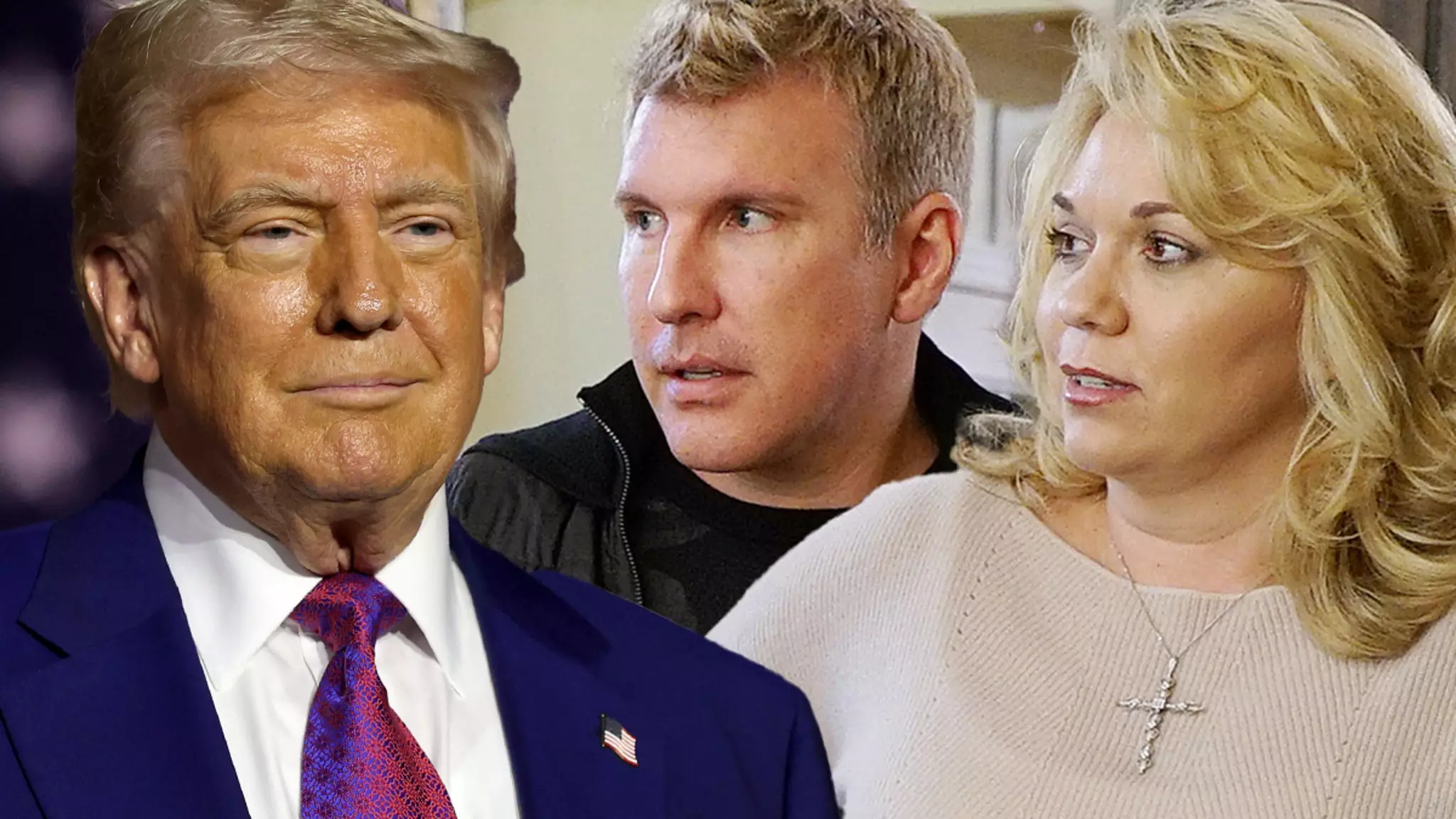The recent pardoning of Todd and Julie Chrisley by former President Donald Trump has ignited a fiery debate about justice and privilege in America. In a landscape where legal outcomes can hinge on social standing or political affiliations, the Chrisleys’ case serves as a glaring example of this inequity. Convicted of bank fraud and tax evasion, the couple was sentenced to a staggering 19 years collectively, coupled with a restitution order exceeding $17 million. Trump’s intervention, justified by what he characterized as an “unfair trial,” raises pertinent questions about the nature of justice in the United States. Are we witnessing a system that favors the powerful, or a genuine quest for rectifying an injustice?
Restitution: A Complicated Web
Under federal law, a presidential pardon has considerable implications, particularly concerning financial restitution. In a twist that could reshape the Chrisleys’ financial landscape, outstanding restitution obligations are nullified upon pardon. The ramifications are profound—this effectively cancels the couple’s debt, providing them with a clean slate financially. However, the law also stipulates that if any restitution has already been paid, the recipients may face demands to return those funds to the pardoned individuals. The nuances of this law invite scrutiny as we explore the ethical dimensions of such financial windfalls for those with the means and connections to navigate the legal labyrinth.
The Family’s Defense and Public Sentiment
The narrative surrounding the Chrisleys resonates with elements of a political thriller. Their daughter, Savannah, has vocally defended her parents, suggesting that their convictions were influenced by external political pressures. By labeling them as “the Trumps of the South,” she argues that their conservative ideology played a significant role in their targeting by a legal system perceived as biased. This sentiment echoes amongst conservative circles, fostering a narrative that positions the Chrisleys as victims of an overreaching system rather than culpable individuals.
Legal Representations and Their Implications
The Chrisleys’ legal representative, Alex Little, passionately contends that the trial was not merely a judicial process but a calculated political maneuver against high-profile conservatives. His declaration aligns with broader concerns about the extent to which political dynamics can color judicial outcomes, particularly for those who attract media attention. The implications of such arguments extend beyond the Chrisleys, casting shadows on how justice is administered across socio-political lines.
A Cultural Commentary
The saga of Todd and Julie Chrisley transcends individual legal troubles, reflecting deeper societal issues surrounding celebrity, wealth, and justice. As they reclaim their freedom and potentially their financial status, it is impossible to ignore the implications for public trust in judicial systems. The pervasive question remains: does justice truly serve all, or are some individuals simply playing the game more effectively than others? Their story is not just about a wrongful conviction; it’s about a potential double standard, where influence can alter the very fabric of justice in America.

Leave a Reply